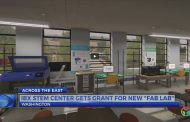Digital Fabrication Expands Further Into Asia
In an era where developed countries are witnessing a leap in technological advancement in digital fabrication, Bhutan won’t be left far behind. With state-of-the-art technology to design and create products, the first ‘FabLab’ will be established in Thimphu next summer.
The FabLab or fabrication laboratory will be equipped with high-tech digital fabrication equipment such as three dimensional (3D) printers, laser cutter, vinyl cutter, small computer numerically controlled (CNC) mills and big CNC mills, which can create anything ranging from a customised cup to a house.
The project is led by the technical designer of FabLab Bhutan, Tsewang Lhundup, founder of the FabLab Asia Network, Yutaka Tokushima of Keio University in Japan and the Project Associate Professor of Keio University, Dr. Tamoaki Watanabe who were in the country for a week.
The team were in the country to meet stakeholders and to turn FabLab Bhutan into a reality. They conducted a baseline study on what the stakeholders expected from the project.
FabLab is a workshop or a studio offering digital fabrication. The lab is equipped with an array of flexible computer controlled machines and tools that can make ‘almost anything’ through projects that can be undertaken individually or by groups, Yutaka Tokushima said.
“In simple terms, one can design and print objects of any material including 3D objects. The products are manufactured or produced from machines that are controlled by computers. A FabLab will comprise of six basic FabLab equipment,” Yutaka Tokushima said. “One can design and print objects of any material through these equipment at the lab.”





